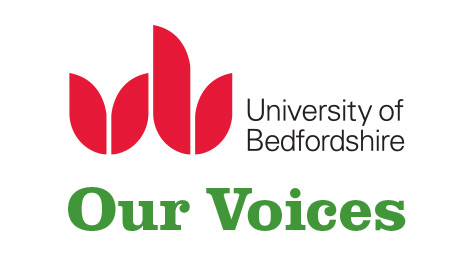Young people’s participation in CSE services: messages from a scoping review

This blog post was originally published on the University of Bedfordshire’s International Centre Blog.
Isabelle Brodie is leading on the participation strand of the Alexi Project, an ambitious strategy
developed by the Child Sexual Exploitation Funders’ Alliance (CSEFA). In this post she reflects on some of the key issues emerging from a scoping review of the literature on participation and CSE which is published this week. You can read the reports here
We talk a lot about participation in the International Centre. We believe it is an important part of everything we do.
But being committed to it doesn’t make it easy. For me, working in this area feels very different to what I usually have to do as a researcher. I also grapple with the whole idea of participation on a personal level – as an adolescent I was frequently the recipient of school reports bemoaning my reluctance to participate in pretty well anything. Maybe this isn’t such a bad thing, as I am instinctively suspicious of any notion that there is some universal law of how or whether participation should take place, and acutely aware of the importance of individual relationships in making it happen.
This week we are publishing a scoping review of literature about the participation of children and young people in child sexual exploitation (CSE) services. It is the first publication coming from the participation strand of The Alexi Project – a large scale evaluation of 16 ‘hub and spoke’ CSE services across England.
The aim of this strand is to find out how services understand ‘participation’, what they are doing to actively engage young people in informing and shaping services – and the challenges associated with this – and how this learning can best be shared. So far this has involved the scoping review, talking to professionals in services, and developing work with young people to find out their views about how they can best be involved in services.
The issues emerging from each of the different elements have proved to be complementary: research information, service user and practice expertise come together to form a robust evidence base.
So what did this review tell us about participation?
Firstly, we can’t overlook the problems of language. The word ‘participation’ carries all sorts of baggage. Discussions with professionals working in CSE services indicate that not everyone means the same thing, and it is important to unpack this. This is also very clear in the research literature, which highlights the spectrum of participation from involvement in individual decision making to a variety of more formalised activities.
Secondly, perceptions of participation are related to our thinking about power, and how power is manifested in the relationship between those commissioning and delivering services, and those who receive them. Ensuring that the views of service users are listened to, and receive a response, has been viewed as an important way of ‘rebalancing’ this relationship. There are dangers, though, that labelling specific activities as ‘participative’ results in the marginalisation of young people or other service users from the real centres of power and influence.
Consequently, and thirdly, structures make a difference. Dialogue and good practice is enabled by an organisational commitment to developing an environment where young people are viewed as experts in their own experience, and where participation is not confined to any one area of activity. Nor should we underestimate the challenges associated with making this happen, especially in a context where there are serious shortages of staff and other resources.
Finally, participation can’t be separated from emotion. There are problems in assuming that we all feel the same way about participation, even assuming we mean the same thing by the word. Some people will see participation as a fundamental part of their work that excites them – and may find it hard to understand why it doesn’t excite others. Some young people and professionals will have experienced participation negatively – endless discussions at meetings that don’t result in anything, or tokenistic forms of participation that have had damaging effects. Some people will be very anxious that they are not ‘doing’ participation properly. To this extent a review of the literature can only go so far – participating is experiential, and what appear to be the same activities will vary greatly depending on context.
Learning more about these issues in the context of the wider project is proving to be an organic process. It’s less the traditional research model than something much more fluid – so we are recording the ups and downs.
You can read more in the main review and the practitioner summary, both of which can be found at The Alexi Project website. We will be publishing more reports and resources over the life of the project, as well as unpacking some of the key findings of the review in our blog in the coming months.






